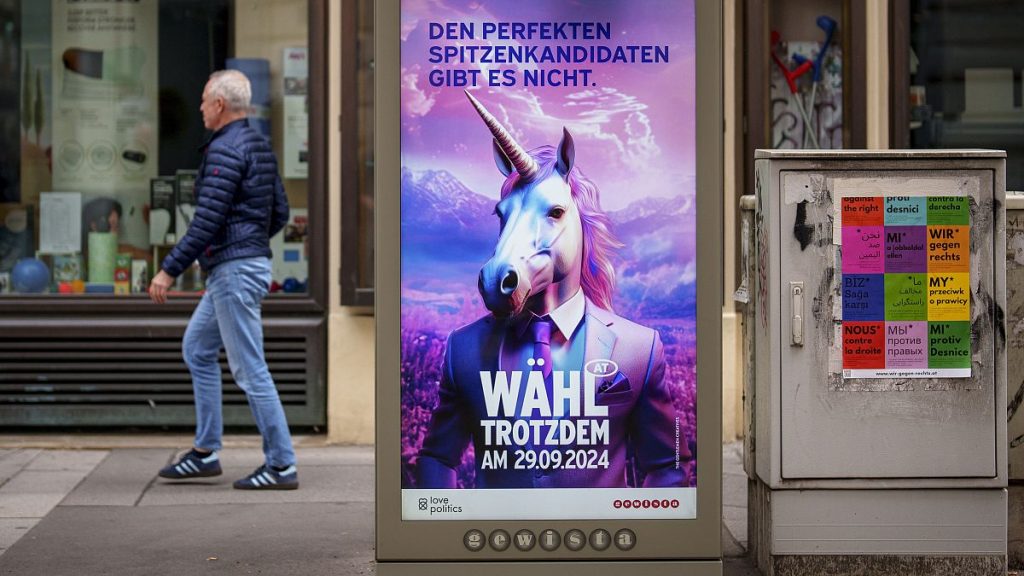The Freedom Party in Austria is set to win a national election for the first time in its history as it taps into voters’ anxieties about immigration, inflation, and the war in Ukraine. Polls have opened in Austria’s parliamentary elections with the far-right Freedom Party seemingly the most popular amongst voters who are anxious about these issues. Herbert Kickl, a former interior minister and long-time campaign strategist, is leading the party and aims to become Austria’s new chancellor. He has sparked controversy by demanding the “remigration” of illegal immigrants and using terms associated with the Nazis on the campaign trail. Despite predictions that the Freedom Party will take around 28% of the vote, forming a coalition might be challenging as other parties have ruled out partnering with them.
Chancellor Karl Nehammer, whose Austrian People’s Party is polling second at 24%, has already ruled out teaming up with Kickl and urged voters to vote for him to prevent the far-right from coming to power. Kickl’s surge in popularity since the last election in 2019 has been significant, with the Freedom Party narrowly winning a nationwide vote in the European Parliament elections and gaining ground along with other European far-right parties. The party has faced setbacks, such as a scandal involving then-vice chancellor and party leader Heinz-Christian Strache, which led to a drop in support. The Freedom Party’s stance on issues such as Russia sanctions, military aid to Ukraine, and missile defence projects has also stirred controversy and drawn criticism from other party leaders.
The leader of the Social Democrats, Andreas Babler, has positioned himself as the opposite to Kickl, ruling out governing with the far-right and calling Kickl “a threat to democracy.” Babler emphasized the focus on improving people’s lives and respecting their realities in politics. NEOS, the Greens, and the BIER Party round out the top five in the polls. NEOS, formed a decade ago, has campaigned on promises to recruit more teachers, reduce tax burdens, and increase political transparency. Party leader Beate Meinl-Resinger aims to create optimism and confidence in Austria’s future. The Greens, led by Werner Kogler, also serve as Austria’s Vice Chancellor and have been praised for their achievements as the junior party in the ruling coalition.
Around 6.5 million Austrians are eligible to cast their ballots in the election, with voting ending at 5 pm local time. Exit polls will give an indication of the results shortly after. The outcome of the election remains uncertain, with the Freedom Party leading in the polls but facing challenges in forming a coalition due to other parties refusing to work with them. The election reflects a wider trend of far-right parties gaining ground in Europe, tapping into voter anxieties about immigration, inflation, and international conflicts. The campaign rhetoric and controversies surrounding the parties involved have sparked debate and highlighted the differing visions for Austria’s future among its political leaders. Ultimately, the election results will shape the direction of the country and its policies on a range of pressing issues.


